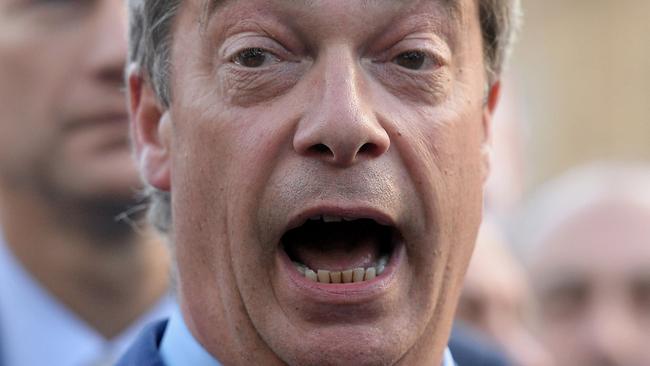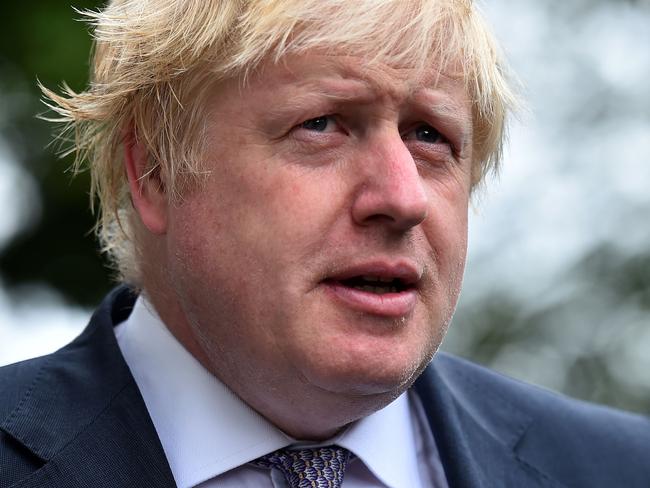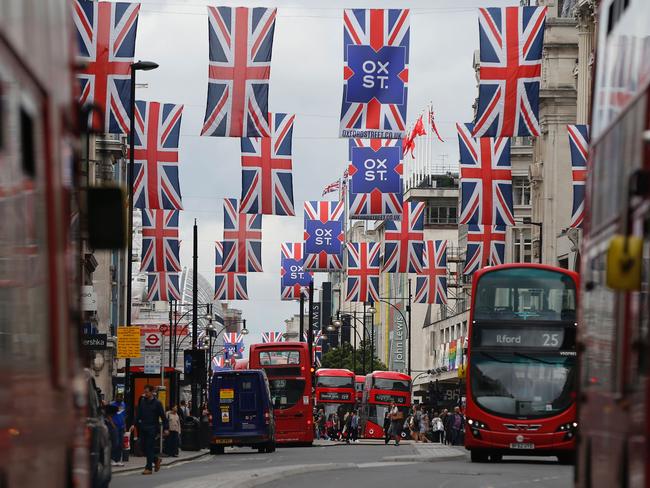Brexit vote exposes deep rift between leaders that want to leave the EU
IT WAS billed as the choice for freedom and low immigration. But Leave Voters are now finding out what they voted for is not exactly what it seems.

IT WAS billed as a simple choice — leave the European Union to “take back control” and gain “independence” for the UK.
But just four days after the shock realisation that UK voters had actually decided to go for it in a referendum result of 52 per cent to 48, major cracks are beginning to appear among Brexiteers.
Already MPs have begun to back-pedal on pledges made during the campaign.
UK Independence Party leader Nigel Farage has admitted the £350 million blasted on a battle bus that toured the country was a “mistake”.
Conservative MP Iain Duncan Smith said such slogans about giving the money to the NHS were merely a “series of possibilities” and if not all the money, the “lions share” could be spent on the health service.
Chief Brexiteer Boris Johnson said he “did not believe” Leave voters were primarily driven by fears over immigration in his weekly column.
“After meeting thousands of people in the course of the campaign, I can tell you that the number one issue was control — a sense that British democracy was being undermined by the EU system, and that we should restore to the people that vital power: to kick out their rulers at elections, and to choose new ones,” he wrote.
The former London mayor also said he “cannot stress too much that Britain is part of Europe and always will be”
“There will still be intense and intensifying European co-operation and partnership in a huge number of fields,” he said.

Those comments could come as a shock to many of the 17 million Leave voters who want nothing more than to end the free movement system that is a condition of entry to the single market.
It’s also highlighted the huge gap between the official Vote Leave campaign orchestrated by Johnson and Michael Gove and the UKIP one led by Farage.
Following the results Farage called an end to the EU saying it is “done for”.
“The sooner it’s replaced with a different kind of Europe of trade and co-operation, the better,” he tweeted. “The British people voted to take back control of our borders and our democracy.”
Queen Mary University professor Tim Bale said the lack of a plan made it difficult to know exactly what the Brexiteers wanted, but there was an “unresolvable tension” between Farage and Gove and Johnson.
“Farage thinks it’s very important to control our borders and that we cannot expect freedom of movement of people,” Prof Bale said.
“Gove and Johnson are instinctively free-market conservatives, that would mean they would be willing and would see it as essential the UK bringing in more migrant labour as and when needed.”
“There is an unresolvable tension between objectives — on the one hand giving people impression that we’ve gained control of borders and on the other hand having access to single market.”
“The biggest danger of all this is that the evidence suggest a lot of people voted to leave because they were alienated from the political class and dissatisfied with the economy. I’m afraid it looks like they’ve been let down again which only means that alienation is going to grow again and the only person that’s going to benefit from that is Nigel Farage.”

On Monday, Prime Minister David Cameron said an EU unit would be established in government to consult with all parties on the process of pulling out of the bloc.
He also deftly defected any questions about how it might work as a matter for the next government and said Article 50 of the Lisbon Treaty would not be triggered until the UK had worked out what its relationship with the EU will be.
The Conservatives will hold a leadership contest on Wednesday and it’s thought a general election could take place later this year. Meanwhile the Labour Party is also in disarray with more than 30 MPs resigning due to a lack of confidence in leader Jeremy Corbyn.
Australian British Chamber of Commerce chief executive David McCreedie said there was “no immediate issue” for Australian businesses but there was a “hesitancy” for those on the cusp of entering the UK market.
He said market volatility could provide opportunity for those looking to invest in the UK over the long term. However it seemed as if older voters who overwhelmingly backed the case to leave had “given themselves an uppercut economically”.
“It’s possibly the worst thing you could do.”
Cameron will attend the European Council this week for a meeting on the future of the country in the EU.
In the meantime he said the UK “must not turn our back on Europe or rest of the world” and the “nature of relationship will be determined by the next government.”




